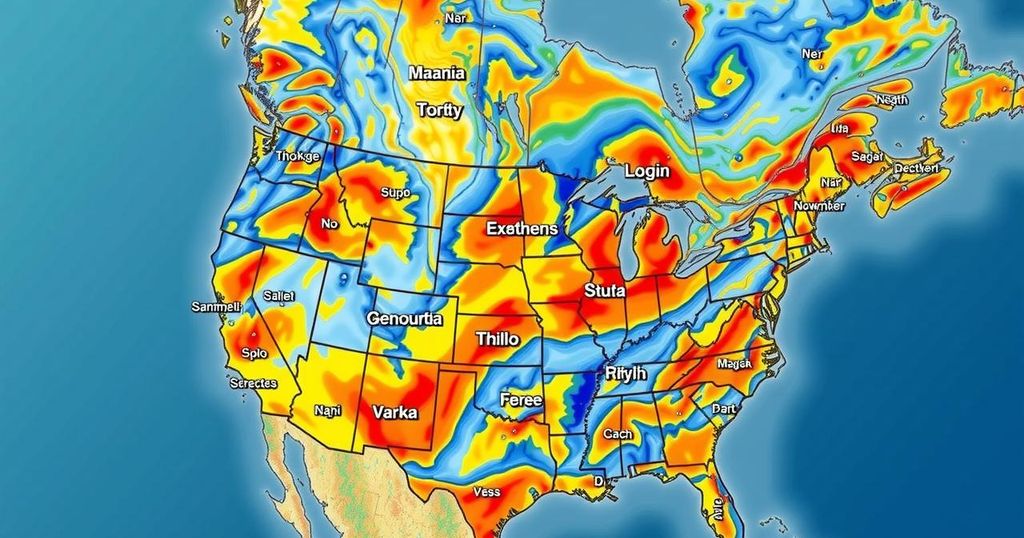Record November Heat in the Arctic: An Alarming Climate Change Reality

Record temperatures were observed in the Arctic in November 2024, with Kirkenes reaching 11.6°C, significantly affecting winter tourism and raising concerns among scientists about climate change impacts. Experts warn of dire consequences including habitat loss and extreme weather patterns associated with the rising global temperatures, emphasizing the importance of climate action.
November has brought record-breaking temperatures in the Arctic region, significantly deviating from expectations of a winter wonderland. On November 8, 2024, Kirkenes, Arctic Norway, recorded a staggering 11.6°C, surpassing the previous November record by 2.8 degrees. Tourists, such as Sap and Yee, visiting for winter activities like the aurora borealis and snowmobile tours, expressed their disappointment as many bookings were canceled due to the unseasonably warm weather. Across the European Arctic Circle, other cities reported similar anomalies, with Tromsø at 11.4°C, Alta at 14.7°C, and Hammerfest at 11.8°C, while Murmansk reached an unprecedented 10°C, the highest since 1975. Climate scientists, including physical oceanographer Arild Sundfjord from the Norwegian Polar Institute, attribute these temperature spikes directly to climate change. Experts are raising concerns about the long-term effects, including rising sea levels and more intense weather patterns, which pose significant threats to wildlife such as polar bears in the region. The Norwegian Meteorological Institute indicates that 2024 could mark the first year with an average temperature surpassing the 1.5°C threshold established by the Paris Agreement, highlighting a worrying trend that aligns with prior unusually warm summers in Kirkenes.
The article discusses the alarming effects of climate change experienced in the Arctic region, particularly in November 2024, as seen in record-high temperatures deviating from typical seasonal expectations. It examines the impacts on tourism, wildlife, and the broader consequences of global warming, including intense storms and rising sea levels. The discussions are underscored by expert opinions from noted scientists on the environmental ramifications of these changes, emphasizing the significance of adhering to climate agreements and addressing the looming crisis.
In conclusion, the remarkable heatwave in the Arctic during November 2024 underscores the urgent reality of climate change. The unprecedented temperatures not only disrupt seasonal norms and affect tourism but also raise critical environmental concerns regarding habitat loss and species conservation. As scientists emphasize, the continued increase in temperatures poses dire implications for the Arctic and global ecosystems, necessitating immediate action to mitigate climate change impacts.
Original Source: www.thebarentsobserver.com







